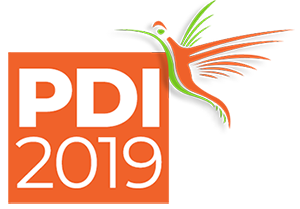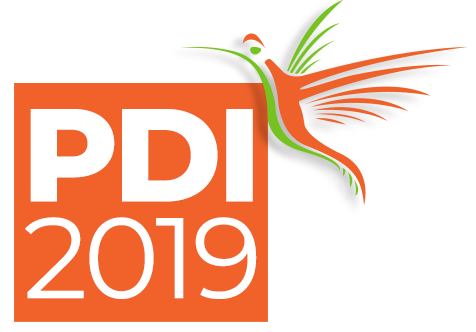Prof. Dr. Nicolaides Andrew


Nicolaides Andrew MS, FRCS, FRCSE, PhD (Hon)
Professor at “Emeritus at Imperial College”
PATHOPHYSIOLOGICAL MECHANISMS OF CHRONIC VENOUS DISEASE AND THEIR ROLE IN C0S CLINICAL CLASS
Author: Andrew Nicolaides MS, FRCS, PhD (Hon)
ABSTRACT
The aim of this presentation is to provide a clear understanding of the pathophysiological mechanisms of chronic venous disease (CVD) at different clinical stages and the possible role of these mechanisms in the development of symptoms in C0s clinical class of the CEAP classification, which consists of symptomatic patients without any visible or palpable signs of venous disease. The prevalence of C0s class in several epidemiological studies varies between 13% and 23% of the general population.
Wall remodelling and valve destruction due to white cell endothelial interaction is the main cause of primary varicose veins, while deep vein thrombosis produces secondary changes leading to the post-thrombotic syndrome. The underlying mechanism of skin changes and ulceration is venous hypertension, which is transmitted to the skin microcirculation.
Over the last ten years, an improved videocapillaroscopic technique, the orthogonal polarisation spectral (OPS) imaging technique demonstrated that quantitative measurements in the skin microcirculation are progressively altered from C1 to C6 patients and that values in CVD patients are significantly different from healthy subjects (P<0.05): capillary diameter increases and capillary morphology worsens from C2 to C5; diameter of the dermal papilla and diameter of the capillary bulk increase from C3 to C5 and functional capillary density (FCD) decreases from C4 to C5. In addition, significant changes have been shown between C0a and C0s patients despite the presence of normal conventional duplex scans in the latter: a decrease of FCD and an increase in the diameter of the dermal papilla.
Functional abnormalities found to be present in C0s patients by recent studies include increased compliance of the venous wall (hypotonic phlebopathy), dilatation of deep veins in the calf producing an abnormally increased venous volume, reduction in emptying of venous reservoir, reduction in the venoarteriolar response on standing and blood reflux in small venules despite a normal conventional duplex scan. However, most of the studies are small and their findings need to be confirmed by larger series. It remains to be seen whether functional changes and microcirculatory changes respond to venoactive medications in parallel to the relief of symptoms.
SHORT CV
Professor Andrew Nicolaides is a graduate of the Pancyprian Gymnasium (Nicosia) and Guy’s Hospital Medical School (London University 1962), and a fellow of the Royal College of Surgeons England, and the Royal College of Surgeons Edinburgh (1967).
His higher surgical training was in Oxford University, Kings College Hospital Medical School and St Mary’s Hospital Medical School, London. He was awarded the Jacksonian prize by the Royal College of Surgeons England in 1972 for his work on the prevention of venous thromboembolism and obtained the degree of M.S. (Master of Surgery) in 1976.
He was Professor of Vascular Surgery at the Imperial College School of Medicine (St Mary’s Hospital) and Consultant Vascular Surgeon at St Mary’s Hospital from 1983–2000 and Medical Director of the Cyprus Institute of Neurology and Genetics from 2001-2004. His research group is known internationally in several areas which include noninvasive vascular screening and diagnostic investigation, early detection and prevention of cardiovascular and venous disease. His research is now directed towards the genetic risk factors for cardiovascular disease, identification of individuals at risk and the development of effective methods of prevention, especially stroke.
He is Past-President of the International Union of Angiology and Past-President of the Section of Measurement in Medicine of the Royal Society of Medicine.
He has received many awards and honorary memberships from many scientific societies. He is Editor-in-Chief of International Angiology and is on the Editorial Board of many vascular journals. He is Professor Emeritus at Imperial College and an examiner for MS and PhD degrees for London University. He is currently the Chairman of the Board of European Venous Forum and Foundation. He is Chairman of the Cyprus Cardiovascular Disease Educational and Research Trust (CCDERT) and Medical Director of the Vascular Screening and Diagnostic Centre in London and in Cyprus. He is Honorary Professor of Surgery at the University of Nicosia Medical School and President of the newly formed Cyprus Atherosclerosis Society. He has trained over 200 vascular surgeons who are practicing all over the world; fifteen of them are holding prestigious Chairs as professors in vascular surgery.
He is co-author of over 900 original papers and editor of 14 books.
Contactează operatorul PDI 2019
Operatorul PDI 2019
Adresa: Str. A. Panu nr. 13, Iasi
Tel.: 0332.40.88.00-05
E-mail: inscrieri@pdi.ro/2019
Website: www.eventernet.ro
